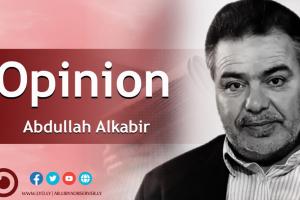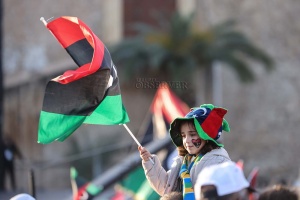By Abdullah Alkabir, political writer and commentator
Is the collapse of the de facto authority system imminent?

The crisis of the governor of the Central Bank of Libya is still escalating between the parties to the conflict, and there are no signs of an imminent breakthrough on the horizon. Rather, what seems imminent is the exact opposite, i.e. more clashes through the decisions likely to be issued by the Presidential Council and the House of Representatives (HoR), as they are the most prominent in the picture. At the same time, the other parties are not visible because they are moving in the shadows.
All declared international positions call for calm and avoiding escalation, and the UN mission (UNSMIL) is proposing an initiative for an urgent dialogue between the parties to the conflict, in an effort to reach a consensus based on political agreements. No party has announced a clear position either to accept or reject the initiative, with the exception of a statement by the head of the Presidential Council in which he confirmed the implementation of the decision to appoint a new governor and board of directors for the Central Bank, as an explicit response to the UNSMIL’s call to suspend all decisions, which it described as unilateral related to the Central Bank.
UNSMIL’s statement also referred to these developments as an opportunity to conduct a comprehensive political process, sponsored by the United Nations, to return to the path of elections, and agree on a unified government. It is indeed an opportunity to launch a new political dialogue, aiming not only to address the Central Bank crisis, but also to find a way to address the roots of the crisis.
The current interactions do not tend towards searching for radical solutions to the urgent crisis surrounding the Central Bank, or other crises, foremost among which is the legitimacy crisis claimed by all parties, that reject all attempts to renew legitimacy through the electoral process. What is happening is working to perpetuate the reality of division and fragmentation, and each party attempts to maximize its influence, gains, and authority.
In parallel with the Central Bank crisis, the dispute continues at the High Council of State (HCS) over the results of the elections for its presidency office. After all efforts and mediations between the bloc of the HCS President, Mohamed Takala, and the bloc of his rival, Khaled Al-Mishri, failed. Al-Mishri’s bloc held a session in which he took over the presidency of the HCS and completed the election of his two deputies, while Takala called for a new session of the HCS within the next few days.
Thus, HCS divisions are entrenched, without any hope of the HCS’s convergence and cohesion again, if the members do not reach solutions acceptable to all. Based on the possibility of the division continuing, the HCS will lose its effectiveness in shaping the upcoming political scene, and this will increase the weakness of the House of Representatives, whose dominant current is aligned with Al-Mishri’s bloc, to avoid the inevitable state of weakness if his partner in the political agreement collapses, and at the same time provides support to Al-Mishri, as he is more inclined to accept the decisions of the Speaker of the House of Representatives, Agila Saleh, regarding the elections, sovereign positions, and the new executive authority.
In the short term, it may appear to some that the disruption of the HCS will enable Aqila and his HoR to lead the political and legislative scene without hindrance, which means that the balance of the conflict will tip in favor of the party in power in the East. However, this vision falls short of realizing the imbalance that will affect the entire system of power, East and West. What all parties in power have worked for with different tactics, and achieved unparalleled success in, is to abort any change in order to continue enjoying all the advantages of power and influence. The weakness or disruption of an essential part of this system will lead to accelerating the collapse of the system.
Disclaimer: The views and opinions expressed in this article are those of the writer, and do not necessarily reflect those of the Libya Observer



